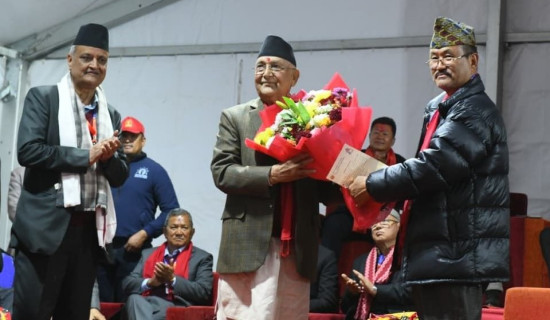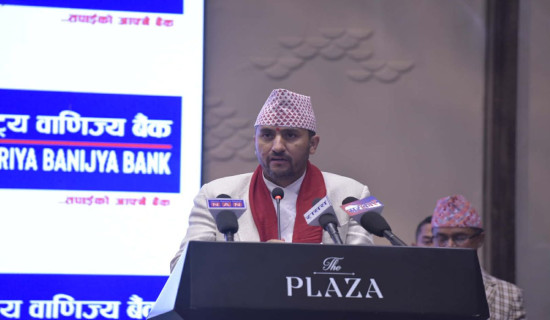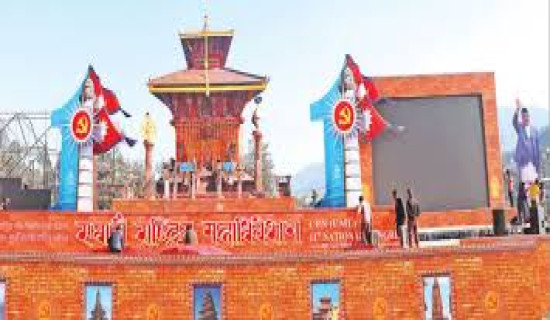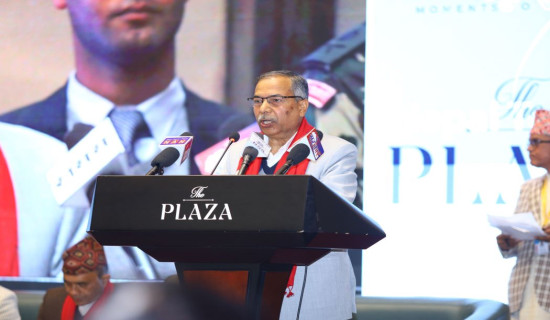- Friday, 19 December 2025
Remembering BP And Pushpalal
Many Nepalis as well as the ruling Nepali Congress (NC) have remembered the charismatic and visionary leader late BP Koirala while marking his 40th death anniversary on Friday (July 22). This has just been a ritual since his demise. The CPN-UML and several other communist factions, too, recalled late Pushpalal Shrestha, who is regarded as the father of communism in Nepal. Shrestha was the founding general secretary of the Nepal Communist Party (NCPN). His 44th death anniversary fell on Saturday.
The two veteran leaders had been able to win the hearts and minds of most Nepalis for their immense contributions to the county’s democratic movements against autocratic Rana regime and party-less Panchayat. While studying in India, Koirala had been involved in the Indian socialist movement that aimed at restoring the southern neighbour’s independence by overthrowing the British rule. India became independent in 1947. Impressed by the success of the Indian revolution, Koirala and Shrestha joined hands with many Nepali leaders to intensify protests against the Rana oligarchy in Nepal. Although Koirala had highly been influenced by Mahatma Gandhi’s principle of non-violence, the former began managing arms to fight for democracy back home. Being a prominent leader, Koirala led the 1951 revolt to end the 104-year-old despotic Rana rule.
Decisive movement
With the success of the decisive movement against the Rana rule, a Rana-NC coalition government was formed. Koirala served as the Home Minister in that cabinet. Even after the end of the Rana regime, the country continued to witness political instability. With the promulgation of a new constitution in 1959 by King Mahendra Shah, a parliamentary election was held. The NC got a landslide victory securing more than two-thirds of the seats in parliament. Though King Mahendra was not happy with the election outcomes, he had to appoint Koirala as the prime minister. Thus, he became the country’s first elected head of government.
But the Koirala-led government was able to work just for 18 months. On December 15, 1962, King Mahendra, who had wanted to rule the nation as an absolute monarch, introduced his direct rule after suspending the constitution, dissolving the parliament and dismissing the elected government. Many landlords were not satisfied with the vital measures, including the land reform ones, taken by the elected government. The parliament had amended the land tenancy laws, making an end to the domination of the landlords. The aristocrats had dominations on the army. So, with the help of the army, Mahendra went to the extent of taking such an undemocratic move.
Even though Koirala was suffering from throat cancer, the Panchayat rulers imprisoned the democracy icon until 1968. Mahendra also received support from India to terminate the elected government and introduce the autocratic Panchayat system. With his farsightedness, nationalism and dedication to social democracy, BP was increasingly becoming popular at home and abroad. The then Indian leaders like Jawaharalal Nehru did not want to see BP’s constant upswing. It is notable that BP received lots of applauds even in the international forums for his outstanding vision for social democracy. He got the NC affiliated to the Socialist International, enhancing the party’s reputation internationally. He also played an influential role in the United Nations.
Owing to BP’s strong lobbying in favour of China, the northern neighbour got membership of the global body. With an effective diplomacy, he was successful in having an excellent bond of friendship with China. During that time, the two close neighbours settled all the border-related issues. Even the current Chinese leaders recollect BP as a good friend. However, King Birendra allowed BP to go to the United States for the treatment of his chronic disease. Even after returning from the US, it was not favourable for him to stay in his homeland. He was again in exile in India to launch a movement aiming at restoring the multiparty democracy in the country.
BP and Pushpalal had good rapport. Pushpalal was in favour of organising a joint movement against the Panchayat rule. He forwarded that proposal time and again. But the NC did not accept the propositions from a radical faction of the CPN for forging a tactical alliance. One of the reasons for not accepting the proposal was that BP feared for the loss of support from the West. At that time, the Western world had not recognised communists as part of any democratic movement. Because BP had good relations with many contemporary Indian politicians, many Nepali communist leaders used to blame him for being a pro-Indian. Actually, it was not true. He was an ardent nationalist. However, the communist leaders have now realised that it was their mistaken view.
Pushpalal was a visionary leader as his proposal of launching joint struggle against Panchayat was historically correct. When NC and Left Front joined organised movement against Panchayat, it collapsed, paving the way for the reinstatement of multiparty democracy in 1990.
When BP decided to return to Kathmandu from Varanasi of India with a policy of national reconciliation in the early 1980s, Pushpalal had urged him to cancel the plan. Pushpalal suspected that the NC’s reconciliation policy would help strengthen the Panchayat system further instead of weakening it. The NC was taking that step in view of India’s growing role in creating a wider gap between the King and the NC. BP had once said: “Although we have a conflict with the King, we must not let India benefit from it.”
Firm commitment
This justifies his great sense of nationalism. Several senior communist leaders have also conceded the fact that they had misunderstood BP in that sense. BP used to plead for democratic socialism as it alone could help address Nepal’s poverty and underdevelopment. He frequently termed capitalism as unsustainable and communism as impracticable. He used to ask development planners to consider the poor farmers while formulating plans. He would give similar suggestions to political leaders.
This shows his firm commitment towards the poor and underprivileged sections of the society. But the NC as well as other political parties seem to have been weaker and losing credibility due togrowing factionalism and self-centredness. The NC now appears to have been deviated from its principles and ideals propounded by BP. Communist parties are also going through the same situation. The NC and the leftist parties must follow the ideals of these cultured leaders for leading the nation towards peace, stability and development.
(Dahal is a deputy executive editor of this daily.)
















